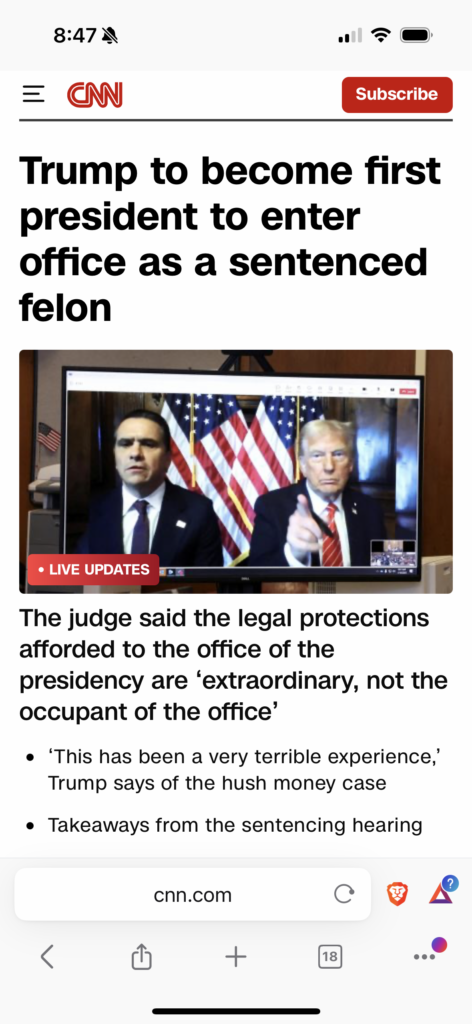I had seen some recent posts from bloggers I follow that the Core Intuition podcast (hosted by Manton Reece and Daniel Jalkut) was coming to an end after 626 episodes over 16 years. I listened to the final episode this week, and it was a pleasant conversation. They did make a few statements which should be examined, though, in my opinion.
The first was about how they were close to stopping the podcast some time ago, but then started taking ads, and they decided to keep it going. Many podcasts I listen to run ads, and almost without fail, the hosts of those podcasts talk about how the ads “make this podcast possible”. I wish to challenge this statement, especially for a podcast such as this. First, the two people involved own their own software companies (albeit small ones), so hosting should not be a problem (host as part of your company servers). Second, was the income from those ads so motivating? Was it paying for direct costs of the podcast? I mean, this is two guys talking, which could be done via Zoom or other free services with production using Audacity, And, they also had a membership option, where individuals could pay to “support” the podcast, and have access to some extra content. Again, was this revenue “the thing” that kept it going so long? I don’t think so. From this one episode, I got the impression that Manton and Daniel were good friends, and enjoyed talking with each other. I think that, with some recent events involving Manton, he felt like this was an area to “cut back” in his life, and Daniel was happy to “free up the time” as well. In my opinion, many podcasts that run ads are trying to “make it pay”, so that the people producing it feel compensated for their time. They could do that podcast without ads, but they are leaning on that as an excuse for running ads, and trying to convince their listeners that “they could not produce this podcast without these sponsors”. BALONEY!
The second statement that I take issue with is that, by their stopping this podcast, they were “creating some space” for new podcasts to start and take root. Give me a break! This is the Internet, where as Doc Searls righteously says “NEA: Nobody owns it, Everybody can use it and Anybody can improve it.”. And, by the way, the Doc Searls post I just linked to is talking about the openness of PODCASTING! Anyone in the world can create a podcast. I have written about how to use WordPress to host a podcast, and using Audacity to edit a podcast. Thanks to the work of Dave Winer, no one has been able to take over the ability to create and distribute a podcast. Marshall Brain gave a great TEDx talk in May 2015 titled “Getting Over Getting Started”, with its main theme that the only thing stopping people from creating things is their own inertia (tools are not the problem, knowledge is not the problem). So, PLEEEASE, Manton and Daniel, don’t think that your stopping your podcast is going to get someone else to fill your shoes. Enjoy your “extra time”, but it is up to others to decide to get into the podcast game, and your leaving the arena is not “making space” for others – the space has been there from the beginning.
I would like to close with a quote from my post “The Joy of Podcasting“:
To close, I recently listened to a Radio Open Source podcast episode focusing on the life of Hannah Arendt, who lived under authoritarian and totalitarian regimes in the 20th century. One line of her writing stood out to me: “We are free to change the world and start something new in it.”. I think that every podcast is a chance to change the world, and anyone is free to create one and send it out into the world. Thank you, Dave Winer, for making this possible.
from “The Joy of Podcasting”
